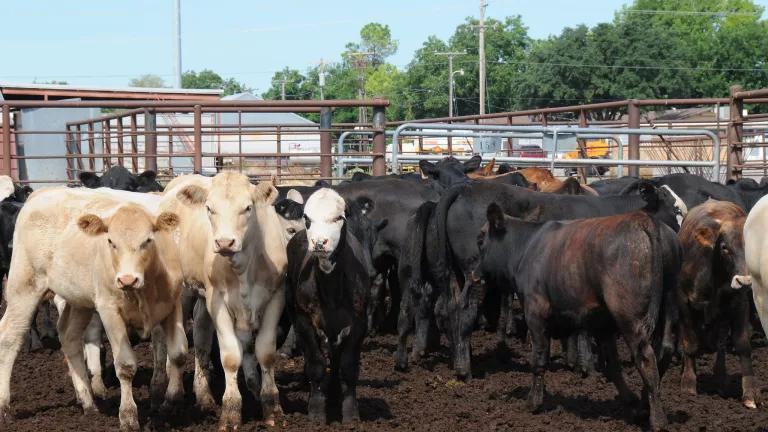New Taco Bell Beef Antibiotics Policy Pressures Wendy's

Yesterday, Taco Bell announced a comprehensive antibiotic use reduction commitment for its vast beef supplies. The fast food giant pledges to cut medically important drugs in its massive beef supply by 25 percent by 2025. Interim progress will be shared with the public in 2022. While it is heartening that Taco Bell is improving its supply chain practices, unfortunately, this pledge doesn’t yet meet the mark when it comes to curbing antibiotics overuse in beef.
Although its commitment does come with a firm timeline in place, six years is an awfully long time to wait for a very modest 25% reduction. Taco Bell also remains conspicuously quiet about how antibiotic use baselines will be measured in its supply chain, leaving the public without a reference point for the reductions slated to be reported in 2022. This lack of transparency seems to be a theme: Taco Bell has not committed to work with an independent, third-party verifier to ensure that the reductions being claimed by beef producers are real. Instead, the company will give preference to suppliers that participate in the industry-led Beef Quality Assurance Program—which specifically allows the routine use of antibiotics in its Antibiotic Stewardship Program.
Taco Bell’s step forward does, however, show that pressure is increasing on Wendy’s, one of the top burger chains and beef buyers in the country, to shift away from its piecemeal approach to reducing antibiotic use in its beef supplies. To date, that chain has focused on reducing only one drug in a small portion of its beef supplies. If Wendy’s truly wants to tackle overuse, they must move toward a comprehensive policy that includes concrete commitments and timelines for change across all of its beef supplies. NRDC and our allies in the Antibiotics Off the Menu coalition have been calling on Wendy’s to do exactly this for months now.
After all, according to the latest Food and Drug Administration (FDA) data, 42 percent of medically important antibiotics sold for use in animal agriculture go to cows. This makes beef the largest consumer of medically important drugs of any livestock sector. Responsible antibiotic use is sorely needed in this sector, meaning that precious drugs would be reserved for moments when cows are sick or if there is an outbreak of clinically verified disease in a herd. Unfortunately, cattle on feedlots are routinely given antibiotics to compensate for the crowded, stressful, unsanitary conditions typical of these industrial operations.
This is a dangerous practice that squanders life-saving drugs while fueling the spread of drug-resistant bacteria to people in a variety of different ways. When a major beef buyer like Taco Bell puts limits on this type of routine use in their supply chains, it can help reshape broader industry practices.
At its early June shareholder meeting, Wendy’s leadership told investors that it would share antibiotic use reduction targets in 2020. Yet with a public health crisis as urgent as drug-resistant superbugs, vague pledges without firm details are akin to greenwashing, giving the public the impression that companies are doing more than they are.
Customers aren’t buying it—and Wendy’s competitors are increasingly taking notice. Taco Bell’s announcement follows bolder steps from others in the industry in recent years. In December, McDonald’s committed to end routine preventative use of antibiotics in most of it global beef supplies, and to set reduction targets for medically important antibiotic use in 2020. Meanwhile, Shake Shack and BurgerFi, which source beef raised entirely without antibiotics, continue to lead the industry.
Over the last few years, we’ve also seen an enormous shift in antibiotic use practices in the U.S. chicken industry. This is in large part due to the many commitments by restaurant chains to end the routine use of medically important drugs in their chicken supplies (including Wendy’s and Taco Bell).
Given the lack of leadership in Washington on this issue, we desperately need restaurant chains to do for beef what they did for chicken: set firm, far-reaching policies that compel producers to adopt better antibiotic use practices.
It seems that the fast food industry wants consumers to believe that they are getting a handle on problematic antibiotic use practices in their beef supplies, as they did with chicken. But it will take more than small steps to make real progress—here’s hoping this is just the start.

